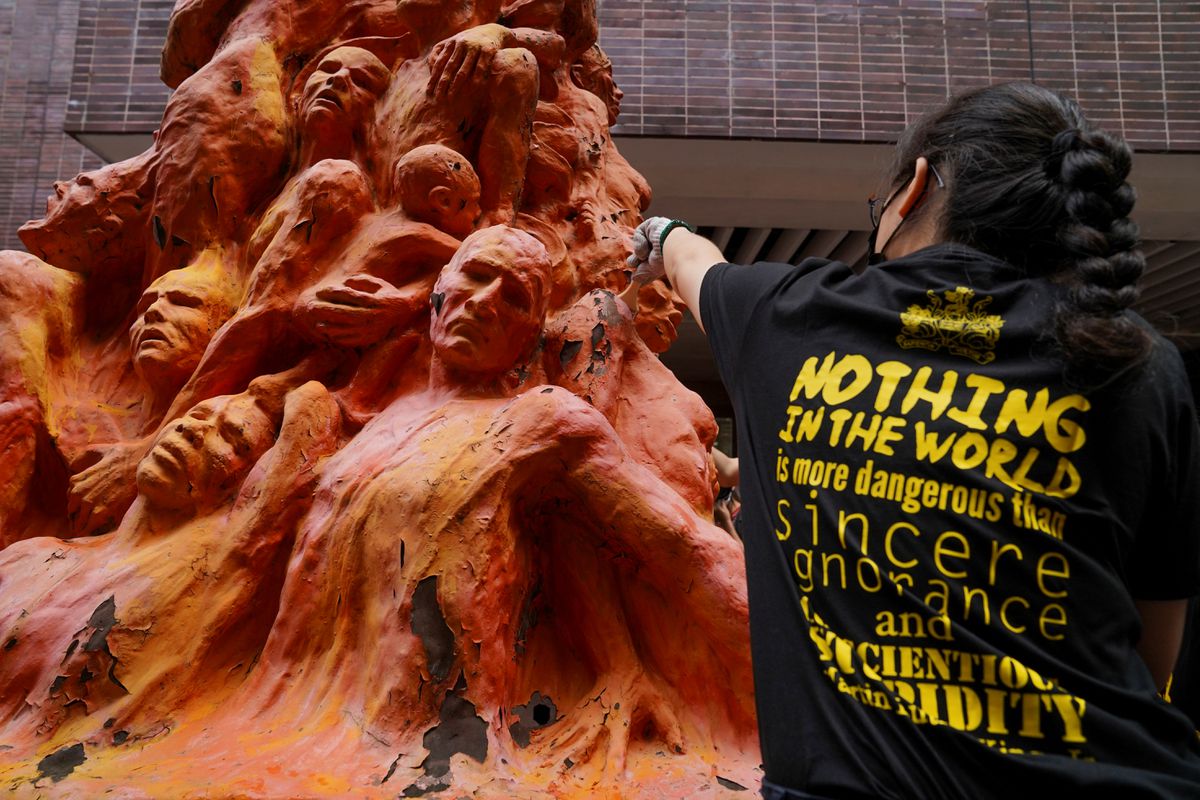
Mayer Brown said on Friday it had withdrawn from helping a Hong Kong university remove a statue honouring slain Tiananmen Square protesters after the firm's role sparked condemnation from human rights groups and U.S. politicians.
The 26-foot-tall (8-meter-tall) copper sculpture has been on display at the University of Hong Kong for more than two decades. It depicts dozens of torn and twisted bodies symbolizing those killed in China's Tiananmen Square crackdown on pro-democracy protests in 1989.
Mayer Brown, which had previously described the case as a "real estate matter," said on Friday it "will not be representing its long-time client (the university) in this matter. We have no further comment."
The law firm, one of the biggest in the United States, found itself caught between international public outrage and the sensitivities of doing business in China.
The University of Hong Kong did not immediately reply to request for comment.
The sculpture known as the "Pillar of Shame" is one of the few remaining public symbols of the Tiananmen Square episode, which is a taboo topic in mainland China and cannot be publicly commemorated there.
The sculptor, Jens Galschiot, loaned the statue in perpetuity to a Hong Kong civil society group that disbanded last month with some members accused of national security offenses. On behalf of the university, the law firm asked the group in a letter to remove the sculpture by Wednesday, which did not occur.
Mayer Brown drew the ire of Galschiot, and attracted criticism from a number of human rights activists and organizations, as well U.S. senators Lindsey Graham and Ted Cruz. A group of 28 non-governmental organizations called on Mayer Brown to end its relationship with the university in an open letter, saying the firm's demand "shows that Mayer Brown has violated its stated mission to make a positive difference in the lives of citizens in Hong Kong."
In response to criticism, the law firm said earlier in the week, "Our legal advice is not intended as commentary on current or historical events."
Mayer Brown can trace its presence in Hong Kong back to the 19th century through one of its legacy firms, Johnson Stokes & Master, which was founded in Hong Kong in 1863 and merged with Mayer Brown in 2008.